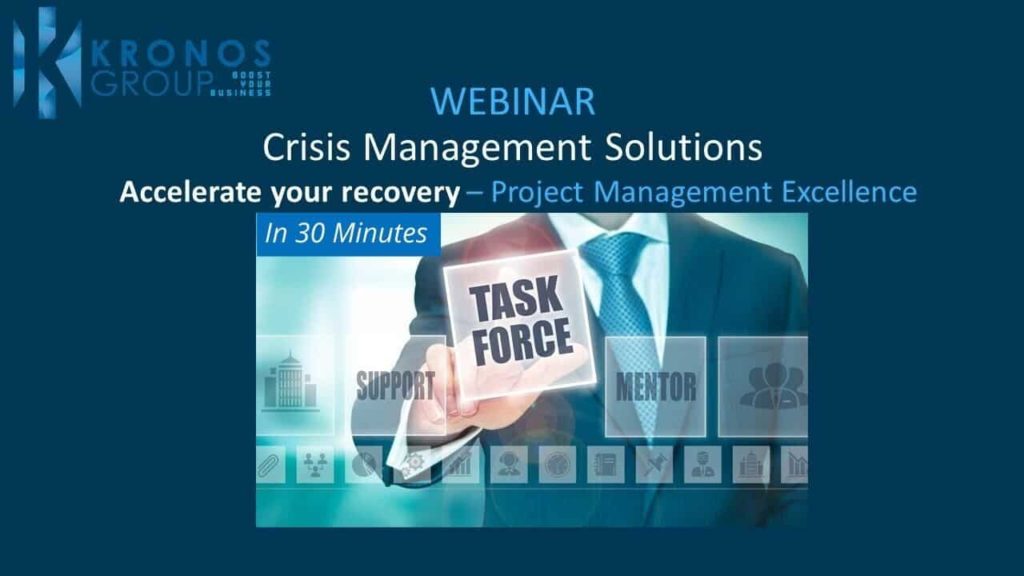Why do companies need project management transformation to form new operational standards in the new normal?

Summary
The changes brought on by any crisis are bound to change the landscape as we know it.
An unprecedented crisis of the magnitude of COVID-19 changes the world in ways that are more than just purely economical and functional. It changes the way the human aspect of a business should be managed as well as the operational standards that govern transformation in the new normal.
Despite the changing priorities of the business landscape, one thing that remains the same is the need for digitalisation. In fact, digital transformations pave the way to meet evolving priorities, improving responsiveness across the board.
Project management transformation and the new normal: In the new normal, companies must prioritise the human aspect of their operations. Ensuring psychological safety helps a company tap into the innovative power and value addition of the project management function.
Consistency and agility: Two features of any successful, contemporary business function is the ability to stay agile to changes in the market and consistent in terms of operational standards and business values. Agile frameworks are facilitated through a digital transformation while operational standards become more achievable and scalable through these transformations.
The key to more sustainable success for your project management transformation is by forming new operational standards based on the priorities of the new normal.
The world, and every industry in it, has undergone significant changes in the past few months and businesses must follow suit and adapt sooner rather than later.
It has been said and resaid multiple times over at this point, but the transformation facing organisations all over the world in the coming months and years make it valuable to keep in mind.
This change is not purely economical, nor is it a change in the way that success can be achieved in the context of the new challenges that are sure to arise. Every business, at the end of the day, is made up of a human team, and the success of the wider company ultimately depends on the resilience of this core human power.
In a post-COVID-19 world, this human aspect of doing business has changed as dramatically as the external environment within which people operate.
We have not yet put this period of great change behind us, and much of the world is still grappling with the health crisis and its reverberating effects. Because this is now a long-term state of existence for many companies, it is time that a company adapts to a new normal and sets new operational standards for how success will be measured in this environment.
Operational standards set the tone for your business. It establishes your priorities and provides guidelines for specific project management achievements, from individual projects to programmes and management procedures. All this means that operational standards will determine the success of your critical functions.
In the new normal, these standards will need to take into account a slew of changes. To meet these changes, however, the function must first be prepared to meet the future.
Although this future is uncertain and dependent on current operations, optimised project management transformation makes it possible to meet the digital future and the standards that will govern the industry.
Project management transformation in the new normal
Digitalisation played a key role in crisis management and recovery. Without the necessary digital framework in place, companies struggled to stay afloat and were forced to leverage digital solutions in some form to adapt swiftly.
One thing that will not change, even in the new normal, is this need to innovate. Crisis or no crisis, the digital age is here to stay and functional transformation is a necessity to stay competitive.
The value of a digital transformation that takes the recent changes in the business landscape into account is that this transformation can also support the new priorities that have emerged as a result of the crisis.
One aspect that will be overturned in the new normal is the human aspect of project management. As we discussed earlier, the crisis had a deeply human impact that will have teams dealing with their own unique challenges, concerns, and a revitalised need for psychological safety.
As an aspect of business functioning that depends on the innovative ability and skill of its team members, it is in the best interest of project management that it centralises the needs of its teams in the transformation and new operational standards of the function.
Consistency and agility
Consistency is often mistaken for deeply established and unchanging systems and processes.
Society, the environment, and the economy are constantly shifting and for project management to stay ahead, it must also be able to shift with these changes. If that was not enough, it must do this while maintaining a consistent structure that centralises the needs of the function, team, and wider organisation.
Agile consistency may seem like an impossible balancing act for any business to achieve, but it becomes more achievable and also scalable with the right project management digital transformation measures.
In an environment of uncertainty, swift decision-making can spell the difference between success and failure. As companies move into the new normal and the operational standards that will define it, it is vital that a framework that supports agile decisions and consistent standards is in place.
Forming new operational standards for project management
Priorities are always changing, especially when crises occur.
As a result of the unprecedented rate and complexity of the crises, however, it often means that priorities are multilayered instead of distinctly new.
This affects a company’s top layer of critical functions immediately. Procurement transformation, finance transformation, and project management transformation are among them.
Sustainable transformation is necessarily structural, cultural—and in the contemporary age—entirely digital. Ensure functional transformation is supporting your new business structures and the operational standards guiding your future success as you proceed in the new normal and tackle the many, multilayered priorities to come.




